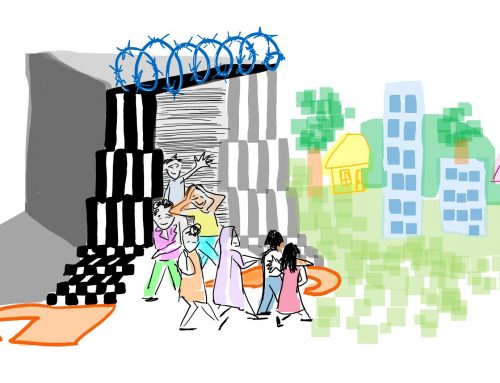We were really concerned to hear of the government’s recent announcement of their intention to send people seeking asylum and arriving in the UK to Rwanda.
After the horrors of the Second World War, the UK was one of the early signatories to the 1951 United Nations Refugee Convention. This vital part of international law gives everybody the right to seek asylum or safety in another country. This proposal to send people arriving in the UK looking for safety to another country many thousands of miles away drives a coach and horses through this vital convention.
People seek safety in the UK and are fleeing from torture and persecution in their own country. Recent research from the Refugee Council showed that 91% of people seeking to cross the English Channel are coming from refugee producing countries. And we should also be clear that there are really good reasons that people might want to seek the safety in the UK such as family relationships, cultural and historical connections and language.
And how can it possibly be right for a wealthy developed nation such as the UK to seek to off load our responsibilities to protect people seeking asylum to a developing country? Surely as a nation we should not be looking to buy our way out of our international treaty responsibilities to protect people seeking asylum?
This is also not a new idea. The Israeli government attempted a similar arrangement with the Rwandan government several years ago, and the independent review of the scheme makes for incredibly sobering reading for how people seeking safety were actually treated when they arrived in Rwanda. We also know that in February 2018, the Rwandan Police killed at least 12 refugees from DR Congo and prosecuted 60 of them between February and May 2018 for protesting about the cut in food rations. In Rwanda, if you speak out, you can be targeted. Also, Rwanda is not a safe place to be LGBTQI+, so this plan will be particularly dangerous for any LGBTQI+ people seeking asylum who are sent there.
There is undoubtedly a major problem in people who are so desperate they are jeopardising their lives by crossing the Channel in small boats. And it is tragic that they have no other option but to put their lives in the hands of people smugglers.
But surely the answer is not to seek to deter people from coming but to explore how we might set up safe routes for people to seek safety.
One of the fundamental flaws of the current Nationality and Borders Bill is that, whilst the government talks the language of safe routes, there just are practically no safe routes for people seeking safety from countries in Africa, the Middle East and Asia.
And furthermore, the sustainable answer cannot be the British government expecting countries in southern Europe to take sole responsibility for any such arrivals in Europe.
It is tragic to see our government responding to the prospect of people seeking to come to the UK for safety by setting up deterrents and ultimately sending them to another country. This is not a sustainable nor a humane way to help people who have a well-founded fear of persecution in their own country.
We should reject this proposal to send to people seeking asylum to Rwanda, and indeed the proposal in the Bill to criminalise people seeking asylum for their means of entering the UK.
Instead, we should put our collective energy into working with other countries to ensure that there are safe routes for people seeking safety in the UK and across Europe.





